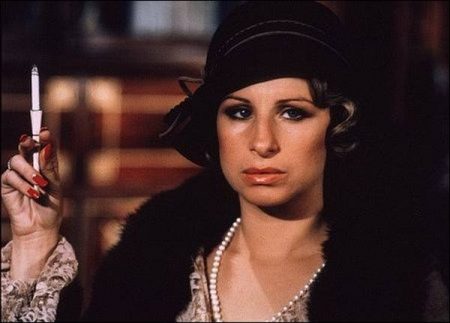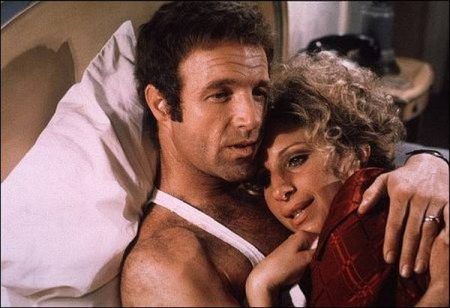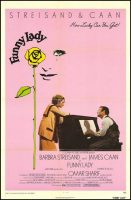Funny Lady movie storyline. The continuing story of Fanny Brice following that depicted in Funny Girl (1968) is presented. An established star on Broadway as a headliner for the Ziegfeld Follies, Fanny and the rest of the world are hitting difficult times entering into the 1930s. Her marriage to Nicky Arnstein, who she still loves is ending in divorce, and even Florenz Ziegfeld Jr. is having trouble coming up with money to continue to produce the Follies.
Along comes brash nightclub owner, song lyricist and wannabe impresario Billy Rose, who says he can raise the money and has the material to produce his own revue, which he wants to star Fanny. Fanny is both attracted to and repelled by Billy because of his chutzpah, his stubbornness and knowing that underneath his outer veneer is the soul of a true hustler… much like she was when she was first starting out and much like she still is now. Through their professional trials and tribulations, they slowly start to fall for each other. But Fanny admits that Nicky is still never far from her mind…
Funny Lady is a 1975 American biographical musical comedy-drama film directed by Herbert Ross and starring Barbra Streisand, James Caan, Roddy McDowall, Ben Vereen, Carole Wells, Omar Sharif, Eugene Troobnick, Heidi O’Rourke, Lilyan Chauvin, Samantha C. Kirkeby, Matt Emery and Joshua Shelley.
A sequel to the 1968 film Funny Girl, it is a highly fictionalized account of the later life and career of comedian Fanny Brice and her marriage to songwriter and impresario Billy Rose. The screenplay was by Jay Presson Allen and Arnold Schulman, based on a story by Schulman. The primary score was by John Kander and Fred Ebb.

About the Production
Although she was contractually bound to make one more film for producer Ray Stark (Fanny Brice’s one-time son-in-law), Streisand balked at doing the project. She told Stark “that it would take litigation to make her do a sequel.” However, Streisand liked the script, which showed Fanny to be “…tougher, more acerbic, more mature…”, and she agreed to do the film.
The first actor to read for the role of Billy Rose was Robert Blake. Other actors were mentioned, including Al Pacino and Robert De Niro, but ultimately James Caan was chosen. Streisand explained: “It comes down to whom the audience wants me to kiss. Robert Blake, no. James Caan, yes.”
Stark, unhappy with the scenes shot by the original cinematographer, lured an ailing James Wong Howe out of retirement to complete the film. It proved to be his final project, and it earned him an Academy Award nomination.
Studio heads forced Ross to trim the film to a manageable 136 minutes before its release. Much of Vereen’s performance ended up on the cutting room floor, together with a recreation of Brice’s Baby Snooks radio show and dramatic scenes involving her and her daughter.
In addition to Howe, Oscar nominations went to Ray Aghayan and Bob Mackie for Best Costume Design, John Kander and Fred Ebb for Best Original Song (“How Lucky Can You Get?”), Peter Matz for Best Scoring of an Original Song Score and/or Adaptation, and the sound crew. Streisand, Caan, and Vereen all received Golden Globe Award nominations, as did Kander and Ebb and the film itself, but it was shut out of any wins in both competitions.
Funny Lady (1975)
Directed by: Herbert Ross
Starring: Barbra Streisand, James Caan, Roddy McDowall, Ben Vereen, Carole Wells, Omar Sharif, Eugene Troobnick, Heidi O’Rourke, Lilyan Chauvin, Samantha C. Kirkeby, Matt Emery, Joshua Shelley
Screenplay by: Jay Presson Allen, Arnold Schulman
Production Design by: George Jenkins
Cinematography by: James Wong Howe
Film Editing by: Marion Rothman, Maury Winetrobe
Costume Design by: Ray Aghayan, Bob Mackie
Set Decoration by: Audrey A. Blasdel, John Franco Jr.
Music by: Fred Ebb, John Kander, Peter Matz
MPAA Rating: None.
Distributed by: Columbia Pictures
Release Date: March 15, 1975
Views: 198

